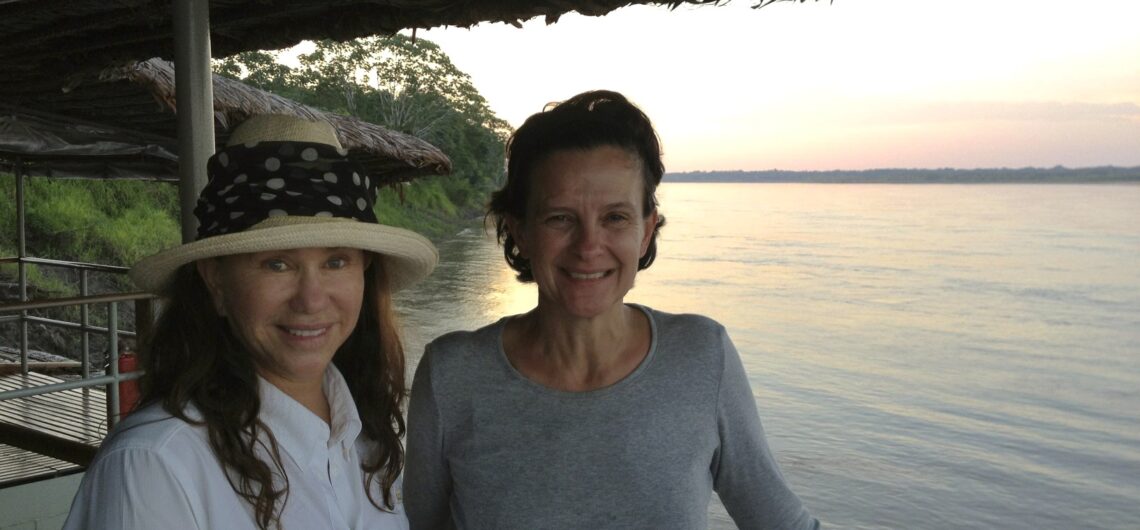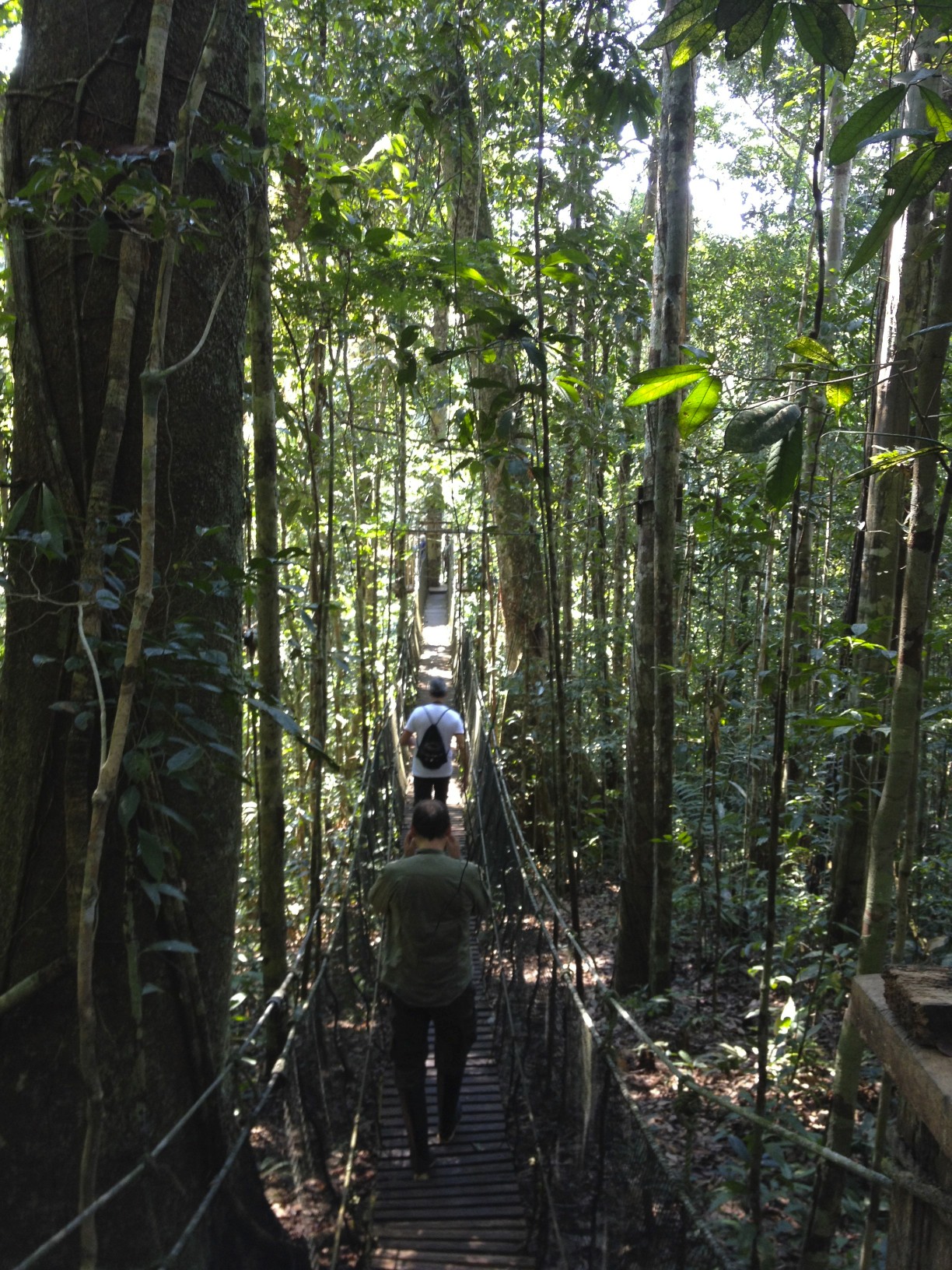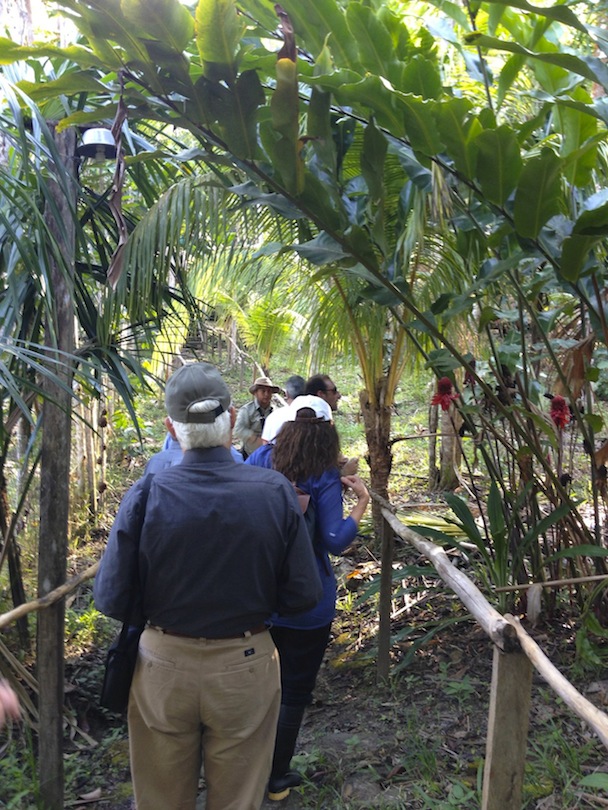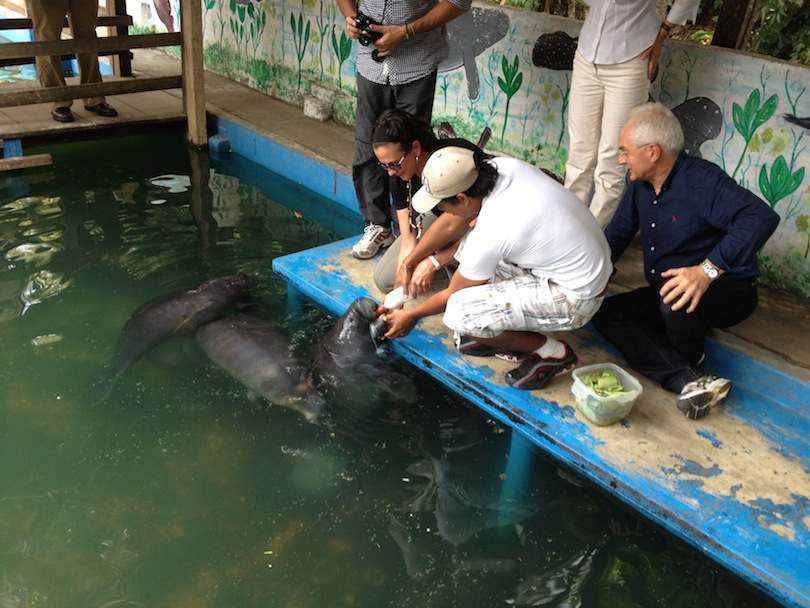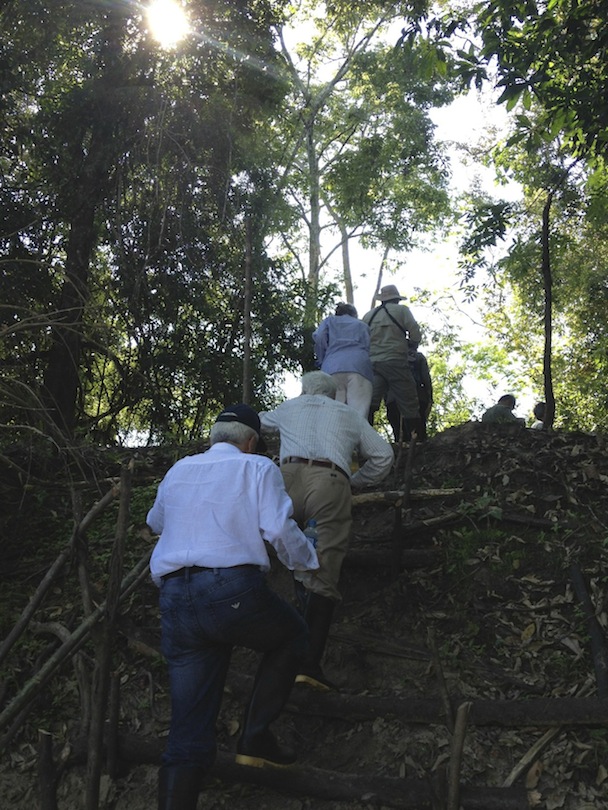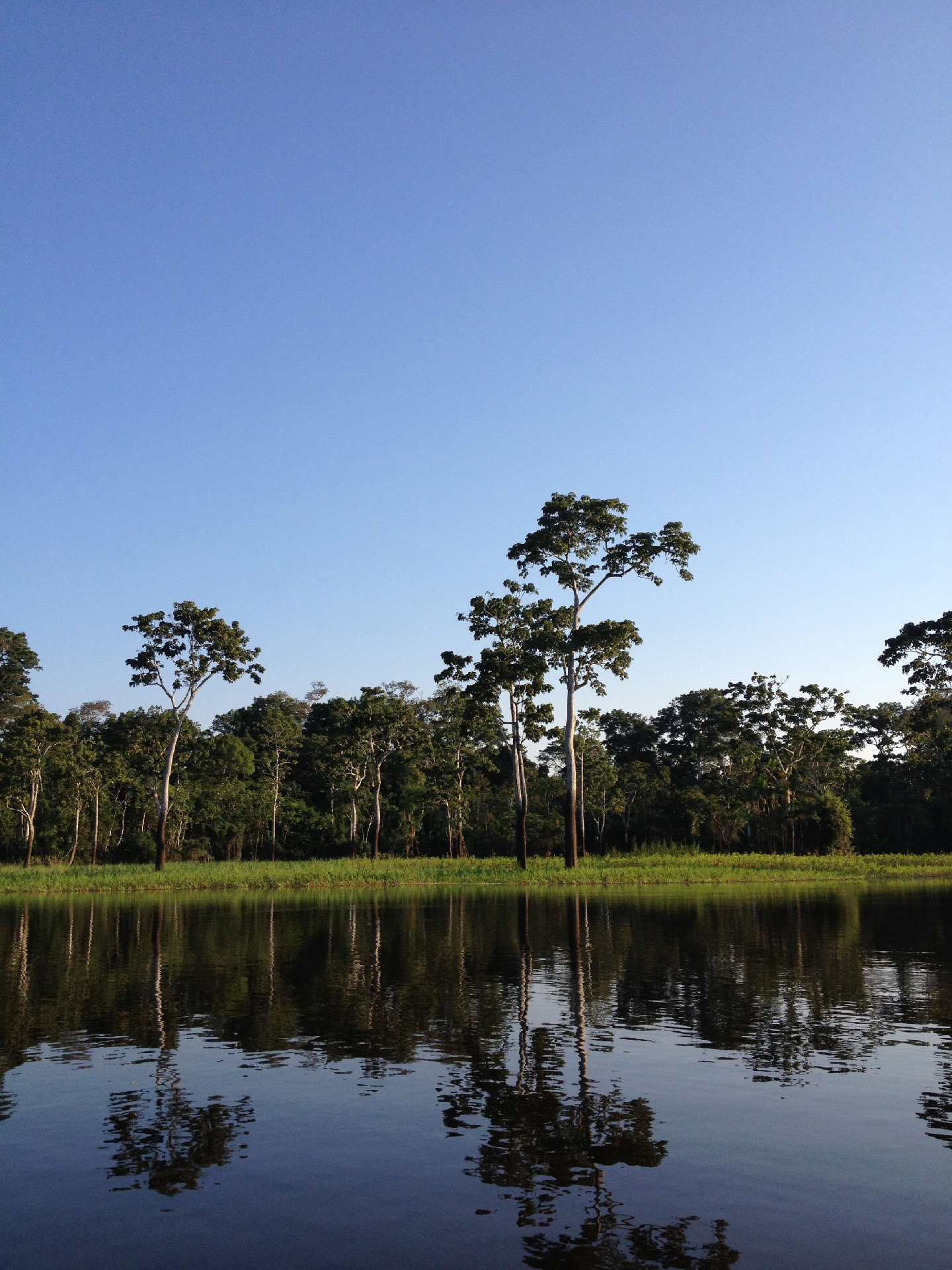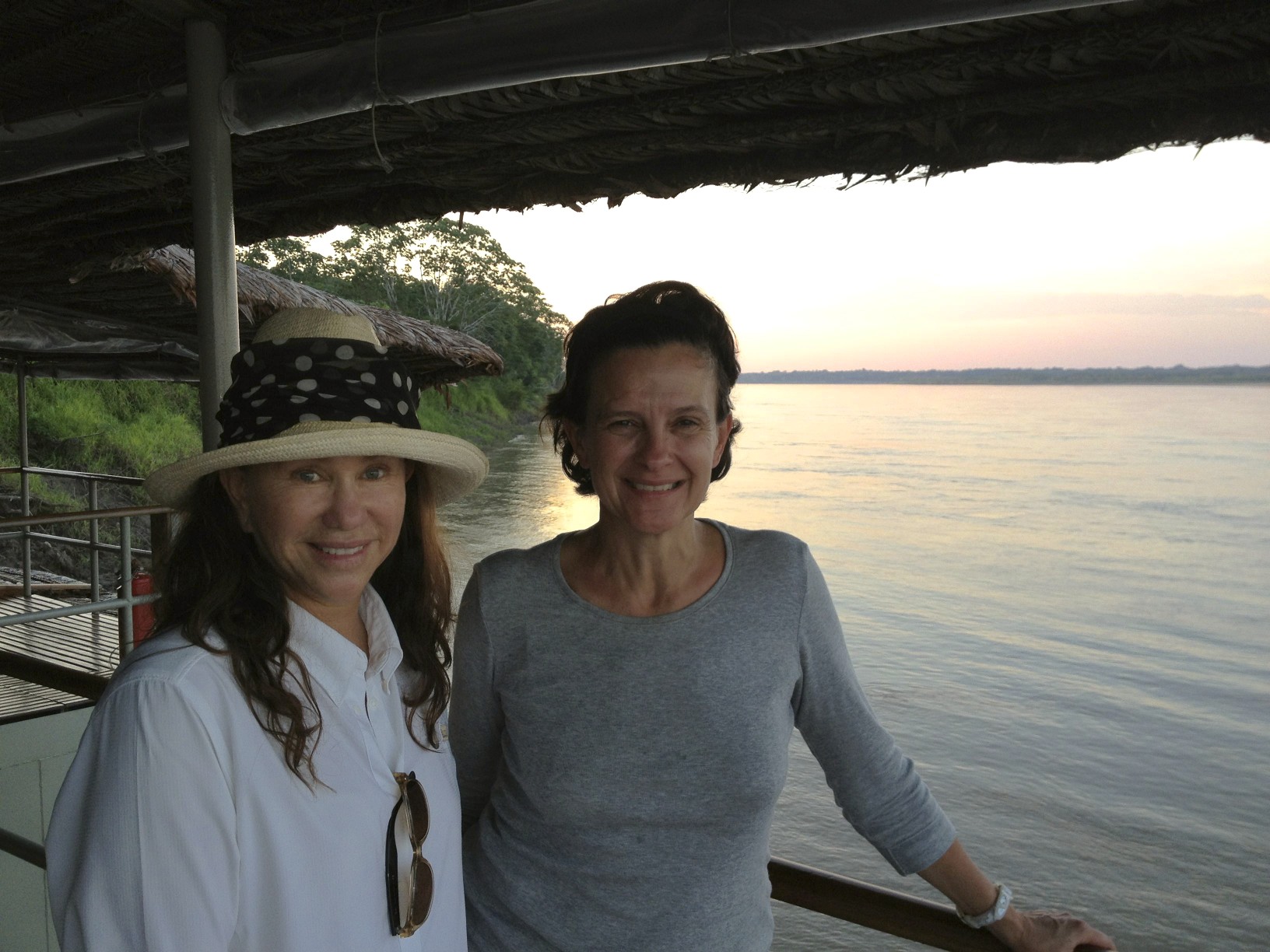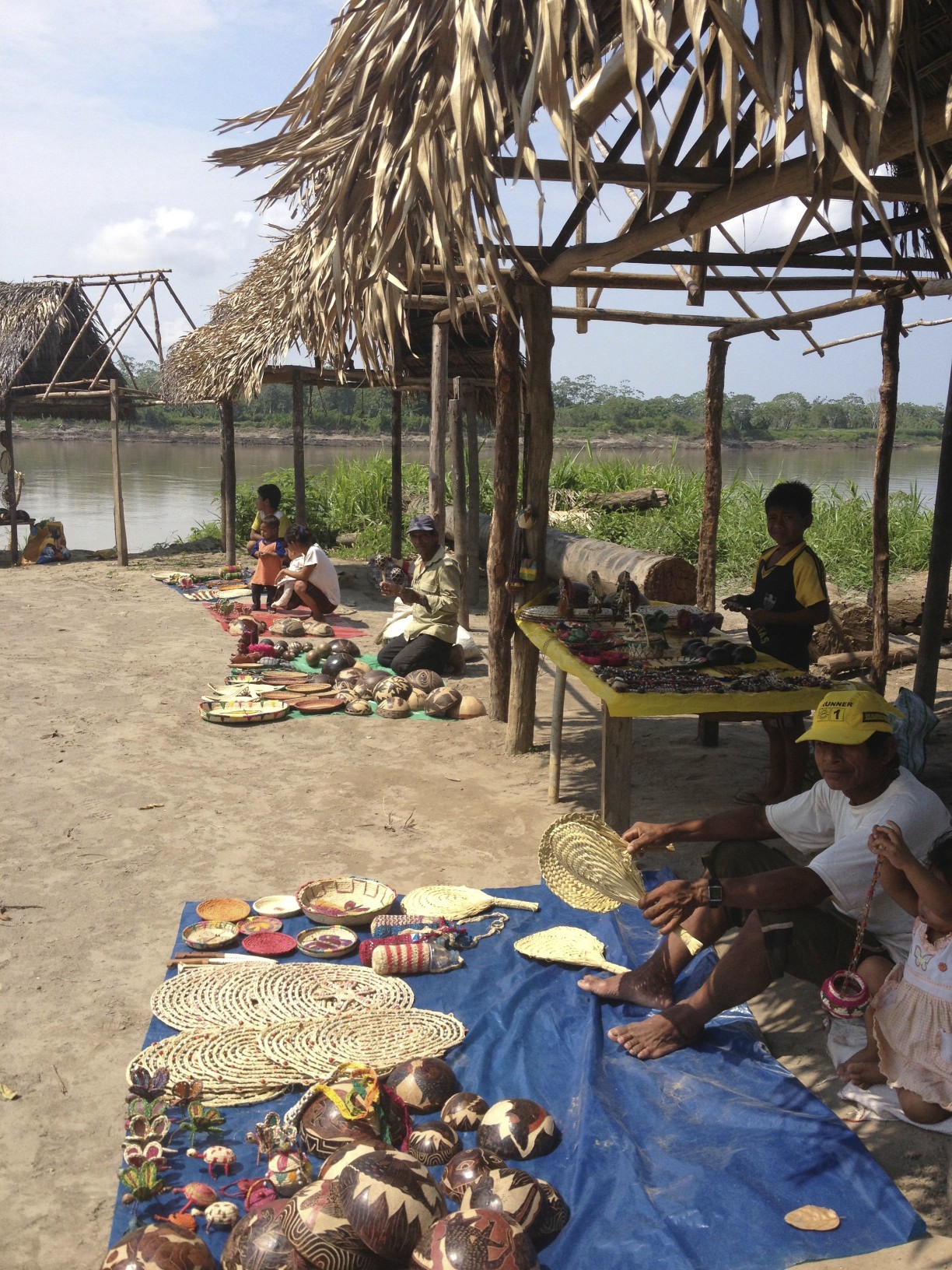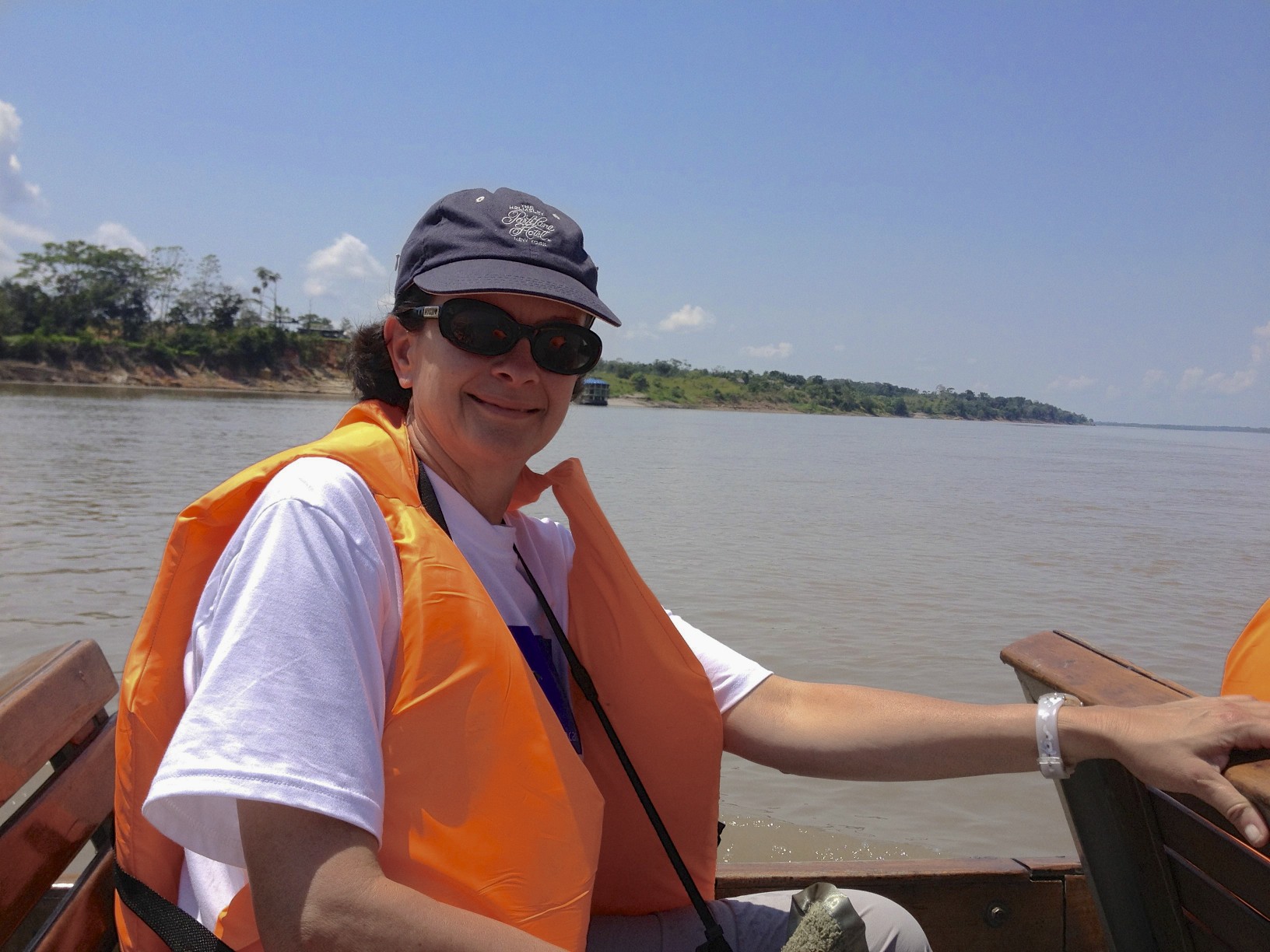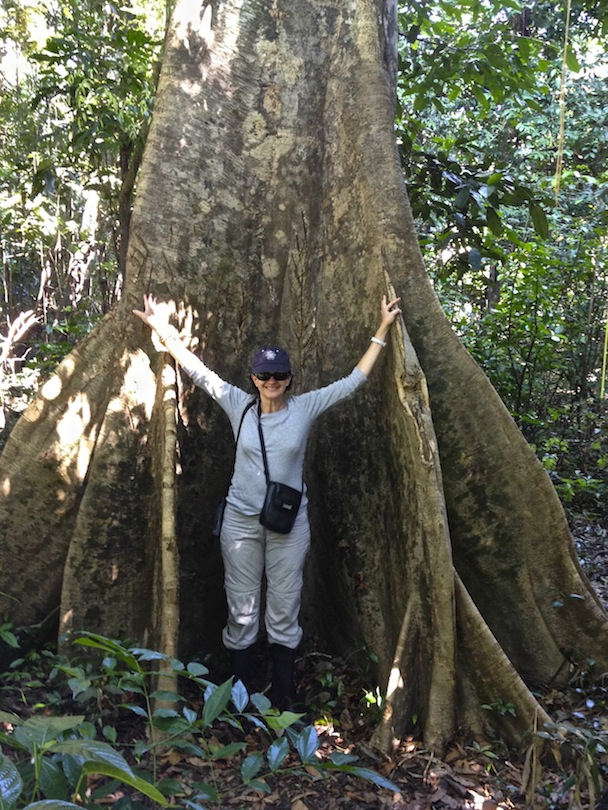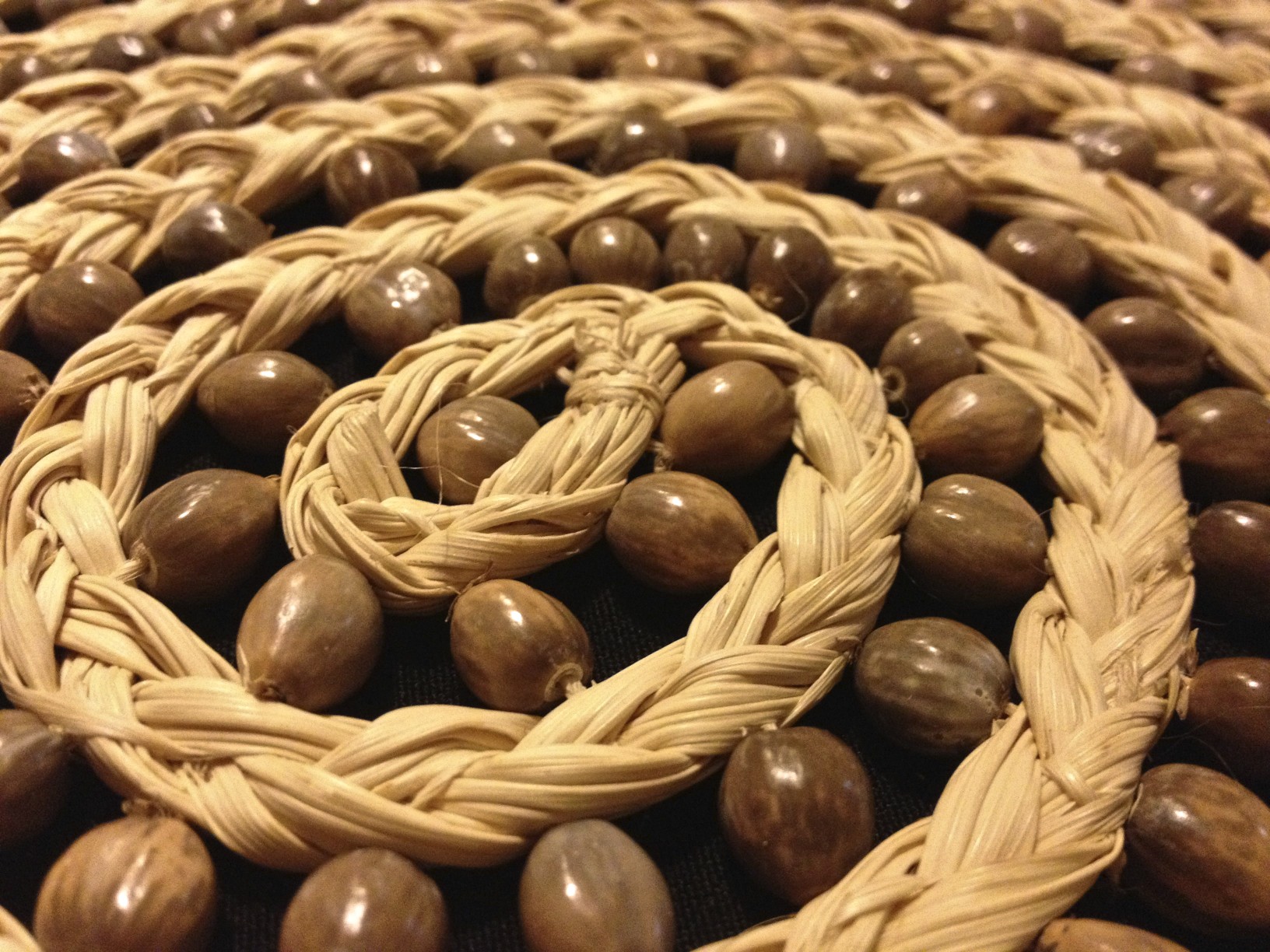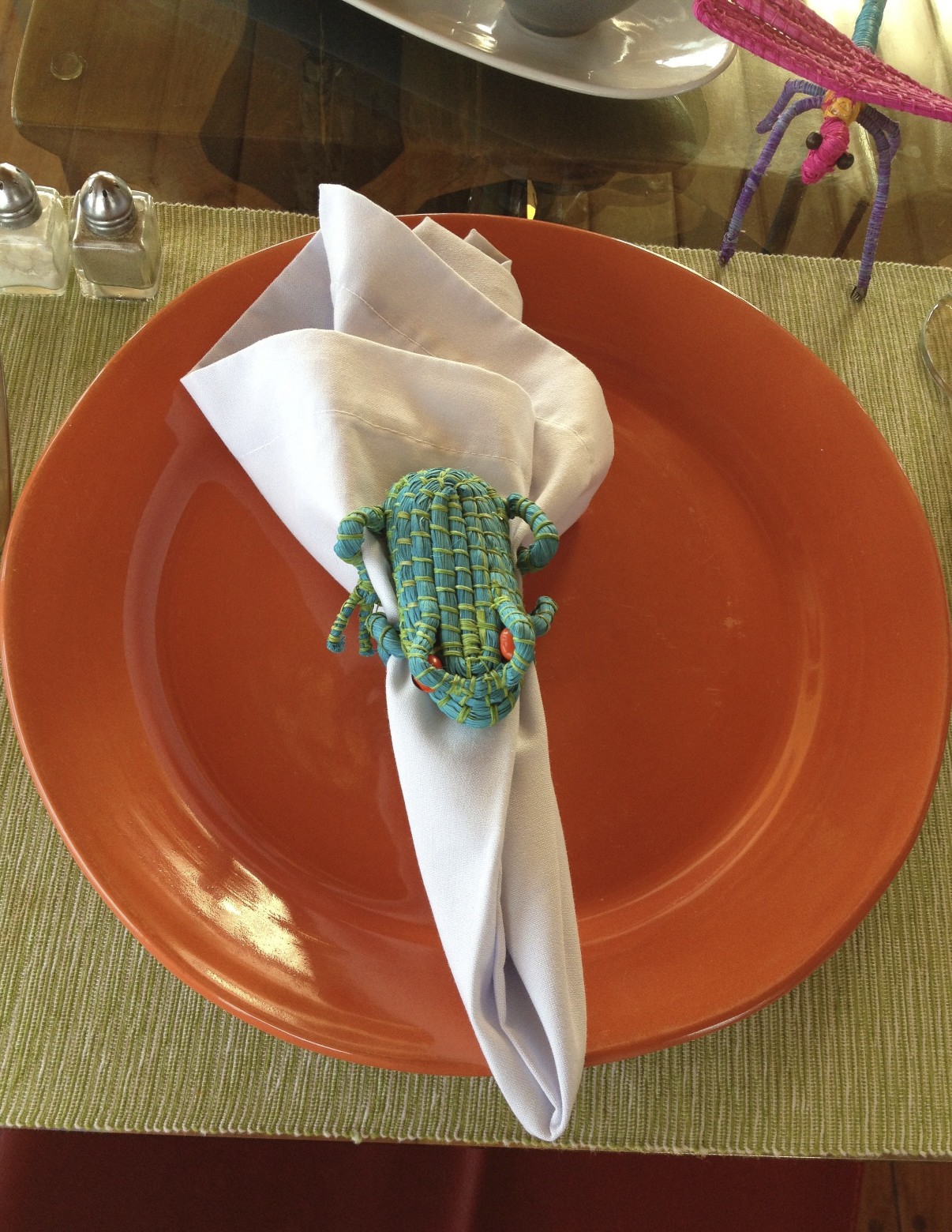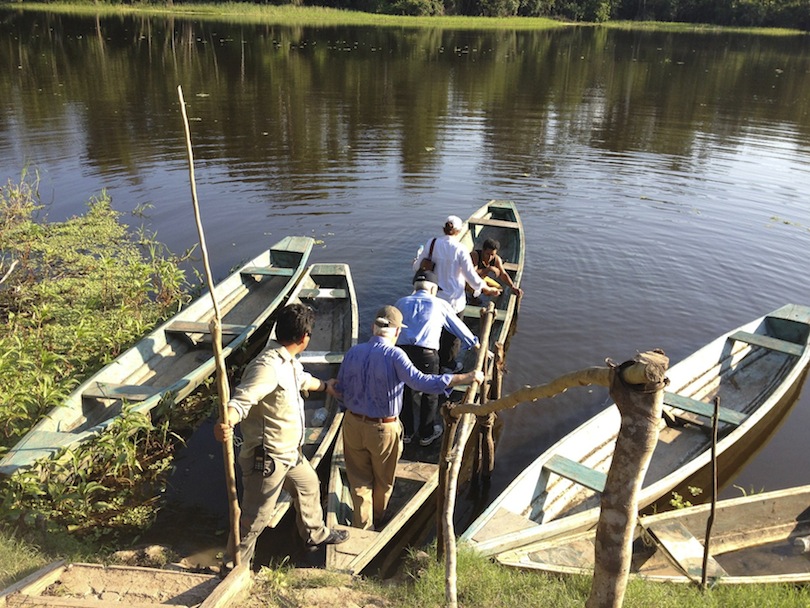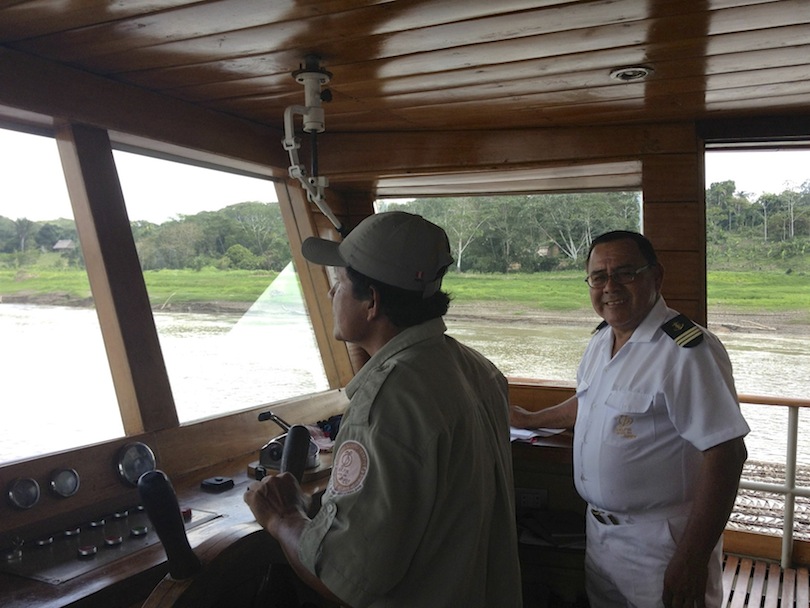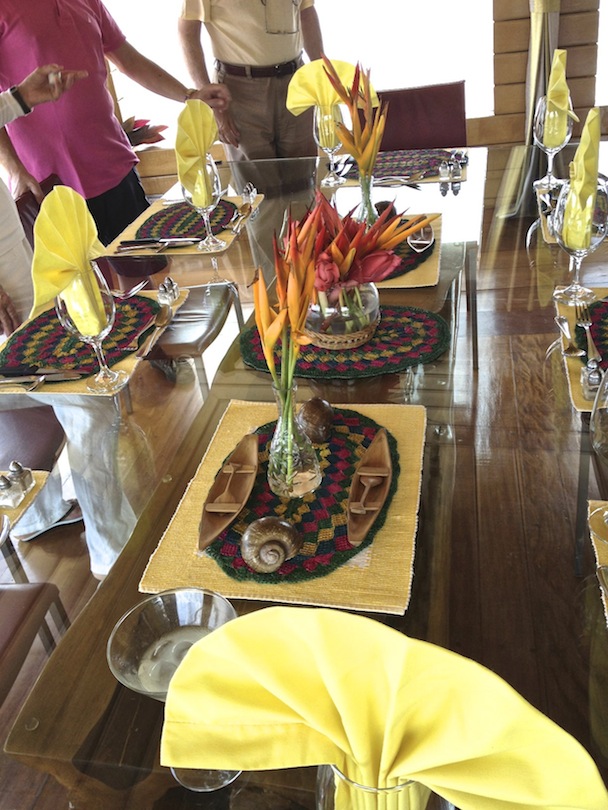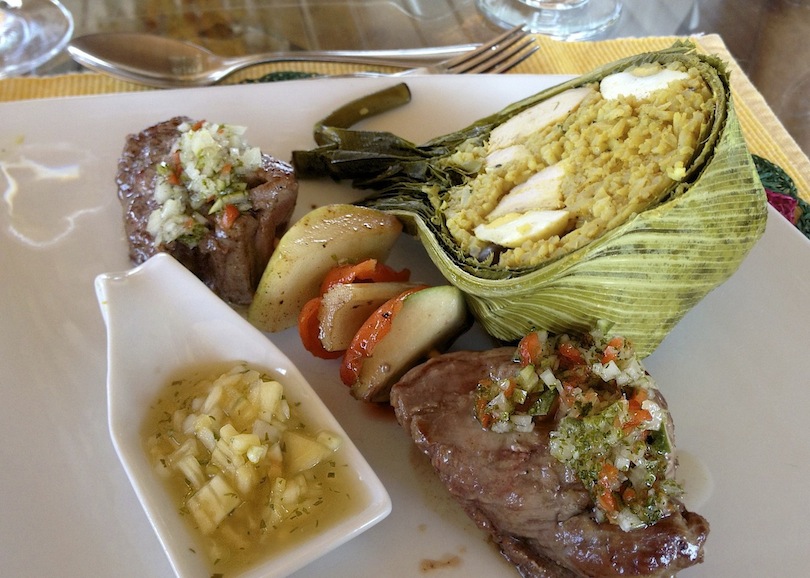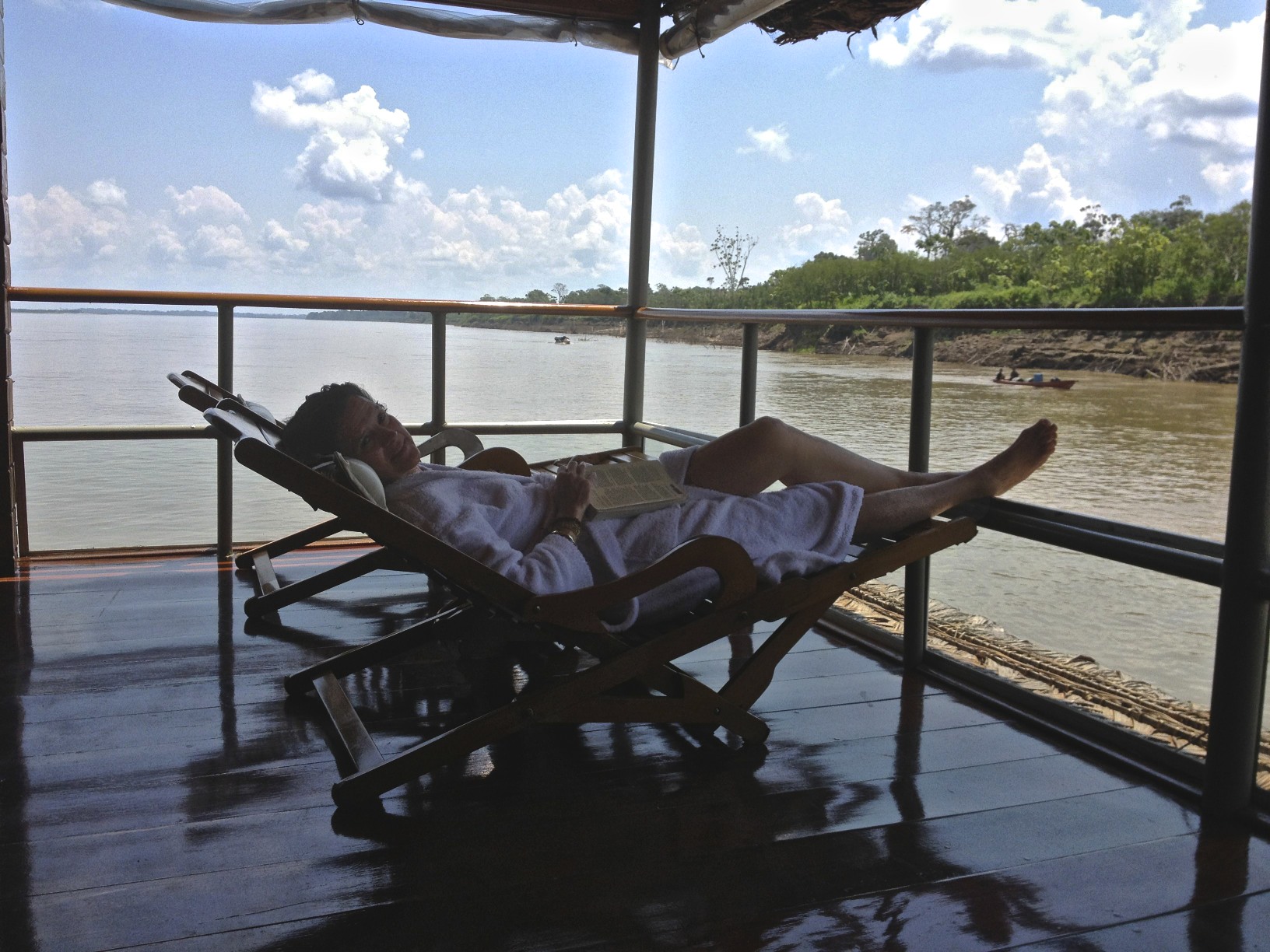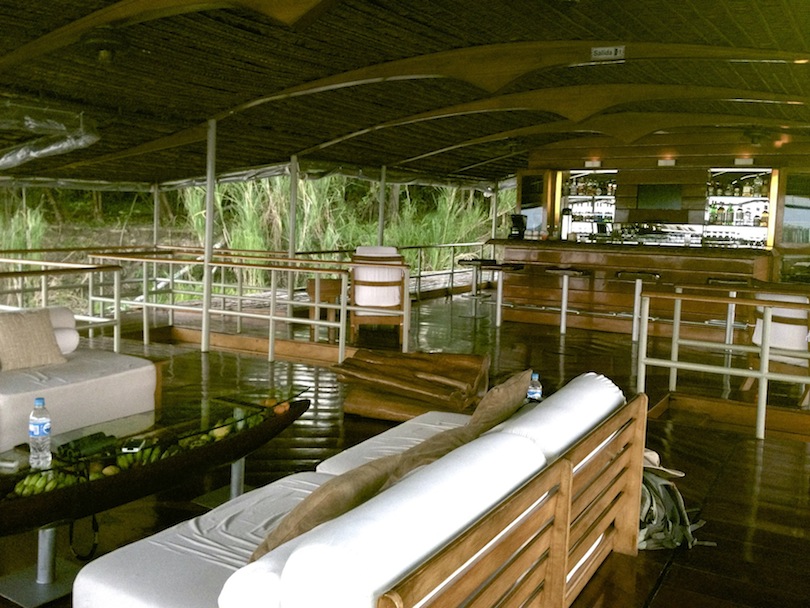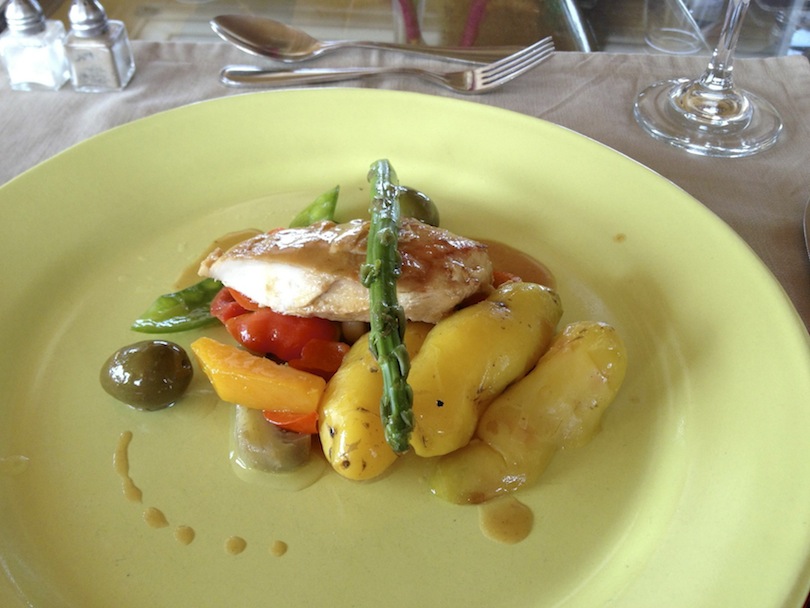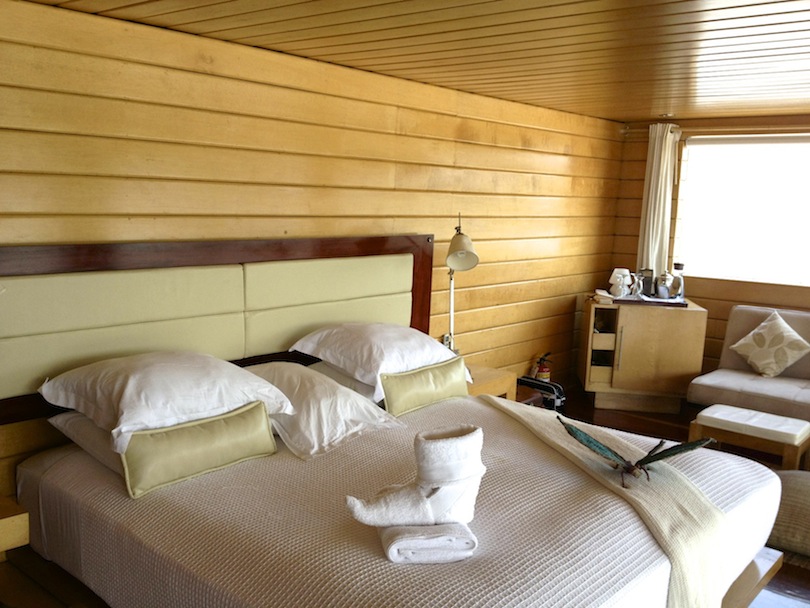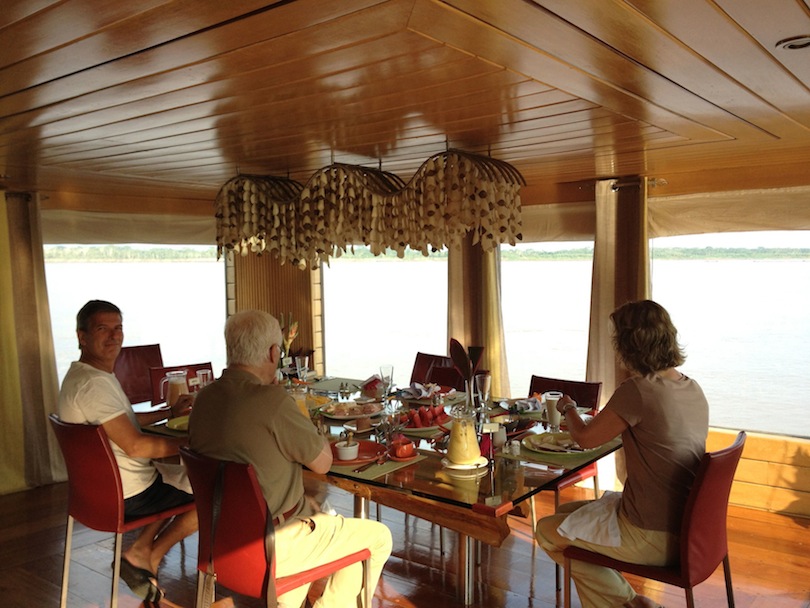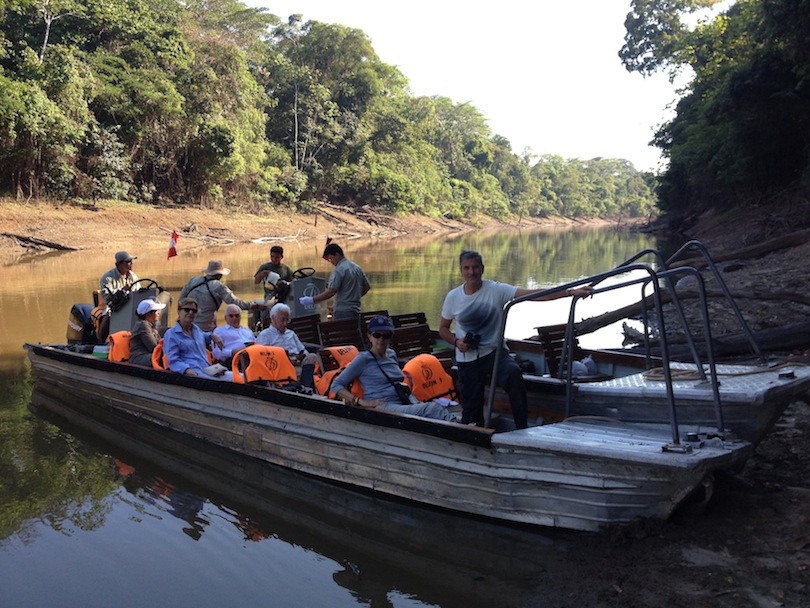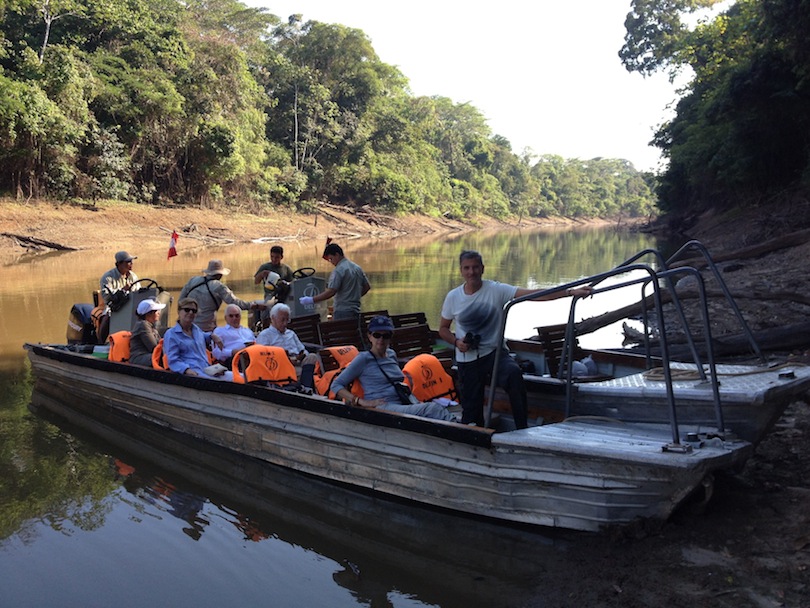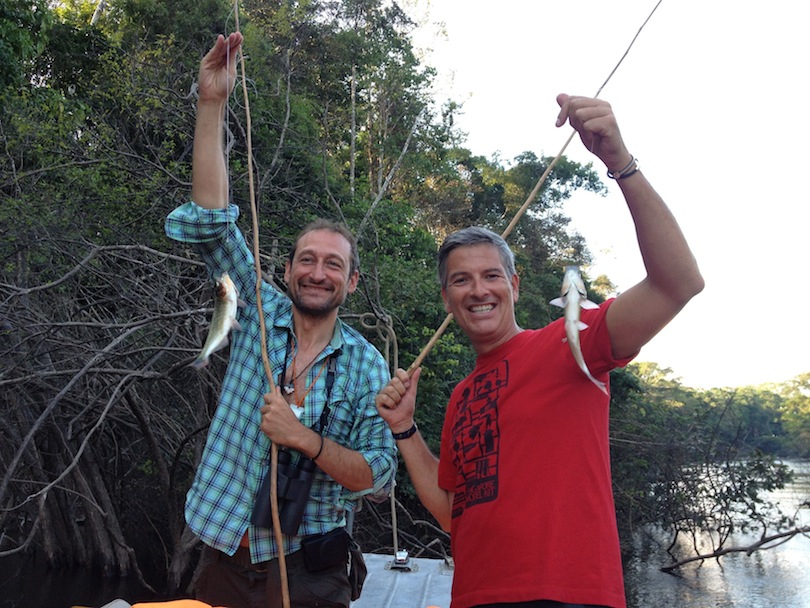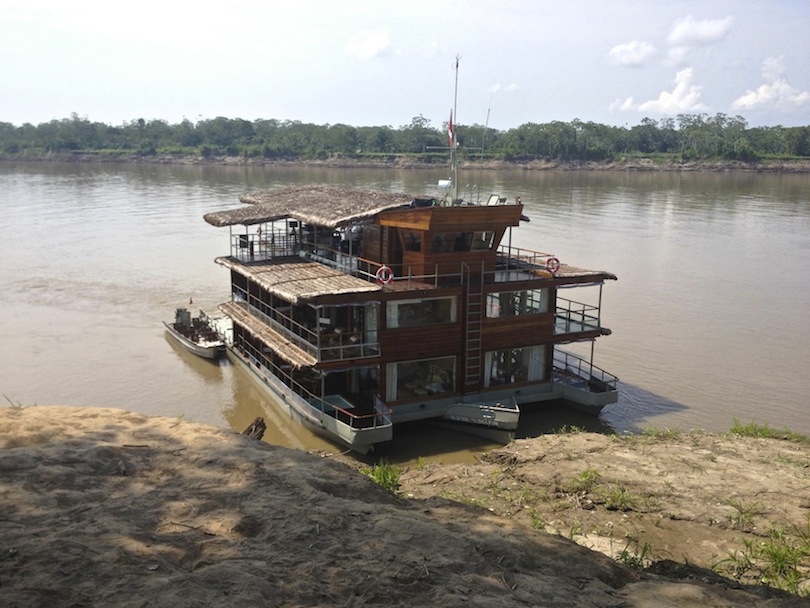Your Luxury amazon cruise
By Marisol | This 4-day, 3-night journey on the Delfin I has vastly exceeded my expectations. I had travelled on the Delfin I in 2007 (before it was refurbished into what it is now, and when it was much less luxurious), and on the Delfin II in 2009 on its Maiden Voyage. Although both experiences were fantastic, this Delfin I is even better: it is an entirely different concept, essentially because it is so small (just 4 cabins) and intimate. I dare say that it must be one of the most luxurious small river cruise ships in the world.
I travelled with my friends Juanjo and Carlos, and the owner of the boat Lissy also joined us later. In addition, we were accompanied by two charming couples from Athens.
In order to travel on an Amazon cruise, you need to first fly from Lima into Iquitos (1 hour and 30 minutes). There are plans for an international flight reaching Iquitos from Panama on Copa Airlines. This will be very good news for the destination, as apparently they also want to link it to Cusco. We shall see how things pan out.
Once we reached Iquitos we were collected from the airport, and we all drove together for 1 hour and a half to reach the town of Nauta, where our floating home, the Delfin I, was waiting for us. The reason why the Delfin cruises begin in Nauta is because this port is much nearer to the Pacaya Samiria National Reserve, which was the objective of our journey. We wanted to spend as much time as possible in the Reserved Area, because it is here where there is more abundance of flora and fauna. If we departed from Iquitos, we’d spend approximately 2 days cruising upriver to reach Nauta without much to see along the way.
Once in Nauta, we boarded the Delfin I. Until the previous rainy season, the docking area for the Delfin Cruises in Nauta was a beautiful wooden structure, a tastefully decorated and charming place where guests would wait to board. The latest rains brought the level of the river to such records that the docking station was all but devastated. They are rebuilding it now.
The Pacaya Samiria Nature Reserve (PS) consists of nearly 3 million hectares of land containing 85 lakes and three distinct ecosystems. The main ecosystem is a seasonal flooded forest, meaning during the rainy season, 90% of the Protected area is underwater. In the dry season, the water recedes to uncover most of the land and sticks to the course of the rivers. The PS consists of the area starting at the confluence of the rivers Marañón and Ucayali and reaching westwards. It is one of the largest areas of protected rainforest in Peru and one of the most unique ecosystems, with 250 species of fish, 132 mammal species including pink and gray freshwater dolphins, 449 bird species and 150 reptile and amphibian species documented. 100,000 people live within the boundaries of the National Reserve and are permitted to hunt and fish solely for their own consumption and not for sale. That is the theory, at least. In practice, however, outsiders do come in, and locals do sell the produce. Some sensitive areas such as the Pacaya, Samiria and Yanayacu Pucate Rivers watersheds receive more protection and are considered to be protected areas, with park wardens and entrance fees. As locals are seeing that these areas are receiving visitors thanks to the repopulation of certain species, some communities have organised to form “Community Reserves,” for which the locals would control the protection of wildlife. There are several community reserves in the Pacaya Samiria Reserved Area. Private and community based reserves, however, constitute a tiny percentage of the total park.
In Nauta we boarded the luxurious Delfin I, and we were shown to our cabins immediately after arrival. The boat has 3 decks. The bottom deck from which you access the boat, has the two deluxe suites (each with its own plunge pool with hydro-massage), and the dining room. The second deck has an additional two cabins, Iguana and Anaconda, both of which are exactly the same as the deluxe suites but without the pool. One of the loveliest and most differentiating features of travelling on the Delfin I is that it doesn’t feel like being on a public cruise; rather, it seems like you are at home or in your own private boat. The suites are so comfortable, spacious and well thought out. They are of course air conditioned, with a king sized bed and the softest pima cotton sheets ever, and a little sofa on the side that becomes a rollaway bed. The bathroom is integrated into the suite but is laid out in such a way that it allows privacy, unlike other integrated bathrooms.
The best feature of the suites is that they boast their own private deck with lounge chairs, as well as a separate table and chair set. It is wonderful to lie down and read in complete comfort and watch the rainforest landscape go by as the boat cruises gently up or down the river. It is hard to imagine that one can be so safe, comfortable and bug-free in this very remote and difficult environment. After settling into our cabins and a short briefing by our guide, we had a delicious dinner in the lovely dining room and retired to bed.
The 4-day, 3-night cruise itinerary varies depending on the season, rainy or dry. (The rainy season is from December to April and the dry from May to November. The dry season, unseasonably called “verano” or summer, is actually hotter because of the clear skies and intense sunshine.) We had two full days of exploration and our last day would be a morning of cruising and visiting a local and authentic craft market and the Manatee rescue centre on our way to the airport to catch our flight to Lima .
Our particular cruise took us upriver along the Marañón for most of the time, where we explored its tributaries on board our well-equipped skiff. We were travelling at the cusp of the dry season, so the explorations are tailored to fit with this time of year. On the second day, and our first day of exploration, we visited the Yanayacu River, the river whose watershed conforms the Yanayacu Pucate, on our skiff, and it was magic. We departed at 6 am and cruised gently upriver looking for birds. We saw a wide variety including many heron and egret species, parrots, blue and yellow macaws, and kingfishers among others. Then suddenly, at 8 am, our breakfast arrived! We had fresh juices, coffee fruit and rolls all served to us by the wonderful Wilson right on the skiff in the middle of the wilderness! It was amazing. We also stopped at the Yanayaquillo lagoon in the afternoon (a community run reserve) .
After our delicious breakfast we went for a gentle hike to explore this bit of the forest, which becomes seasonally flooded. We saw a wide variety of trees, and our guide Jesus, a native from the Bora ethnic community north of Iquitos, interpreted the forest beautifully for us. In order to have an enriching experience in the forest, a good guide is essential, and Jesus definitely accomplished that. We learned about the symbiosis of trees, vines and ants, for example, and the life of bullet ants, leaf cutter ants and their reproductive process. The walk we did today is not possible during the rainy season, because the water can rise as high as 12 metres, so the visits are mainly boat- and skiff-based during that time. After the visit, we had a wonderful swim in the river and then went back to our boat.
We returned to the boat at 11.30 sharp as planned, and had plenty of time to relax in our cabins until lunchtime. Lunch today consisted of a beautifully presented Causa (seasoned potato filled with avocado and crabmeat) and Doncella (Amazonian fish). Dessert was amazing: banana and chocolate filled raviolis with lemongrass custard sauce. I wont bore you with the detail of every menu, but I would like to highlight that the cuisine in the Delfin I is absolutely divine!
One of the features of the Delfin Amazon Cruises boats is the detail that goes into every part aspect of the décor, with the purpose of bringing the Amazonian spirit and landscape into the traveller’s experience. The food content, the presentation, the decor of the dining room, upper deck lounge, bar and suites are all envisaged to allow you and to encourage you to engage with the Amazon environment. It is important to note that the lounge and bar on the upper deck is open (i.e. not air conditioned). This is something unique to these boats and makes the experience much more authentic. Another feature is the decor of the dining room and place settings. Every meal has a different decoration and layout: not only the table but even chairs and curtains are changed so that they match the colour coordination of the occasion. The result is not only beautiful to look at, but a conversation piece among travellers all of who sit around the same table.
After a siesta, our afternoon was spent paddling in the lagoon Yanayaquillo on a locally crafted dugout canoe. This lagoon lies within the San Jacinto Community Reserve. It was a beautiful afternoon.
During the evening and into the night the Delfin I continued to cruise upriver on the Marañón, until we reached the confluence with the Rio Tigre, an important river and one of the main tributaries of the Marañón. Near there, there is the private reserve of San Regis, with an 8-bridge canopy walkway stretching a little over 1 km and with an average height of 30-40 metres. This was an unforgettable experience and very much worthwhile. We then took an hour walk on Terra Firme (forest that never floods) trails, after which we headed back to our floating home for a rest.
The afternoon was spent fishing on the Choroyaku River, a seldom-visited river and where the local community controls entrance. We didn’t catch any piranhas as we had expected but had a great time and captured about a dozen sardine-like fish called corvina. As we slowly cruised on our skiff, we were escorted by at least half a dozen pink river dolphins. It was a wonderful spectacle. We saw two Monk Saki monkeys perched on a high branch, dozens of greater and snowy egrets as well as a variety of herons flying overhead. We spotted an opossum, an Amazonian marsupial by the riverbank. An amazing sight was a slate coloured hawk, which had just caught a frog and was grabbing it with its claws. Then to our great surprise, as the evening was setting in, dozens of fish like the ones we had fished started jumping from the water, and many of them landed in our skiff and others even hit our heads! It was a unique experience to say the least. We returned to the boat in the dark, taking our time to look for caiman, although we only saw a couple for a brief moment. It was a magical afternoon, just as the rest of the experience had been. On arrival on the boat, we started cruising downriver on the Marañón until we reached the Amazon River proper approximately 3 hours later.
On our last day, we decided to take the morning easy and not go kayaking, despite the fantastic location and excellent equipment. We visited the craft sales of the San Francisco community. They had really lovely crafts for sale, including many of the placemats and table decorations we had on the boat. It was a very nice visit.
After our last lunch on board, we said our farewells and headed to the airport. We were not ready to go. The 2-hour drive back felt long, but the brief stop at the Manatee Rescue Centre shortly before arriving at the airport of Iquitos was a wonderful and genuine experience that cheered us up.
The Delfin I is a very different experience to the Delfin II and to the Aqua and Aria boats. It is unique and not comparable to any other luxury amazon river cruise. It is perfect for charter or for individual bookings and a must for a special occasion such as a birthday, a honeymoon or anniversary. The accommodation is authentic and luxurious, the guiding is excellent and the visits are well thought out, keeping the guest in mind at all times. It is an amazing way to visit some of the most remote rainforest in the Amazon in total comfort—a highly recommended experience that exceeded my expectations by a long way.

